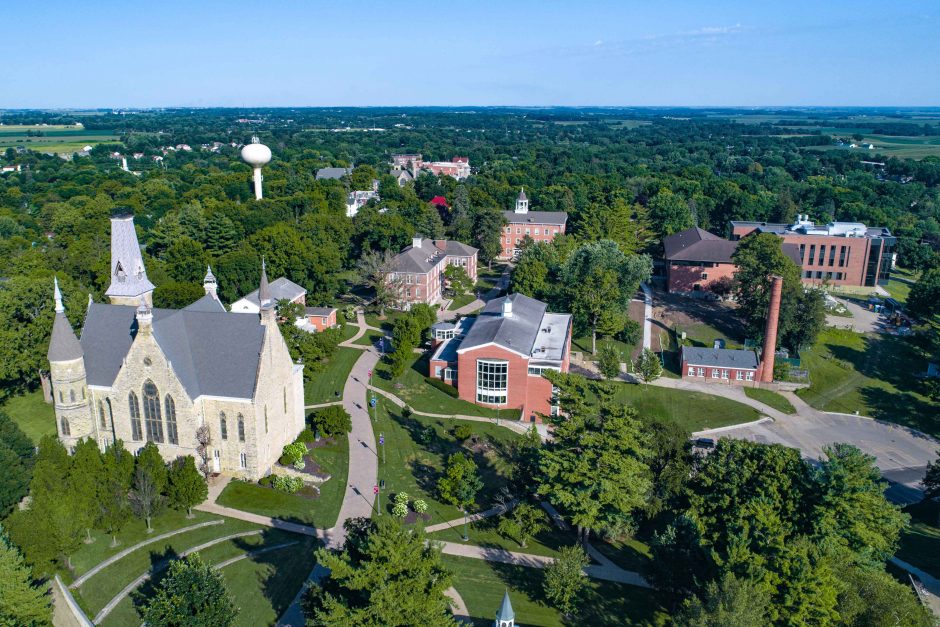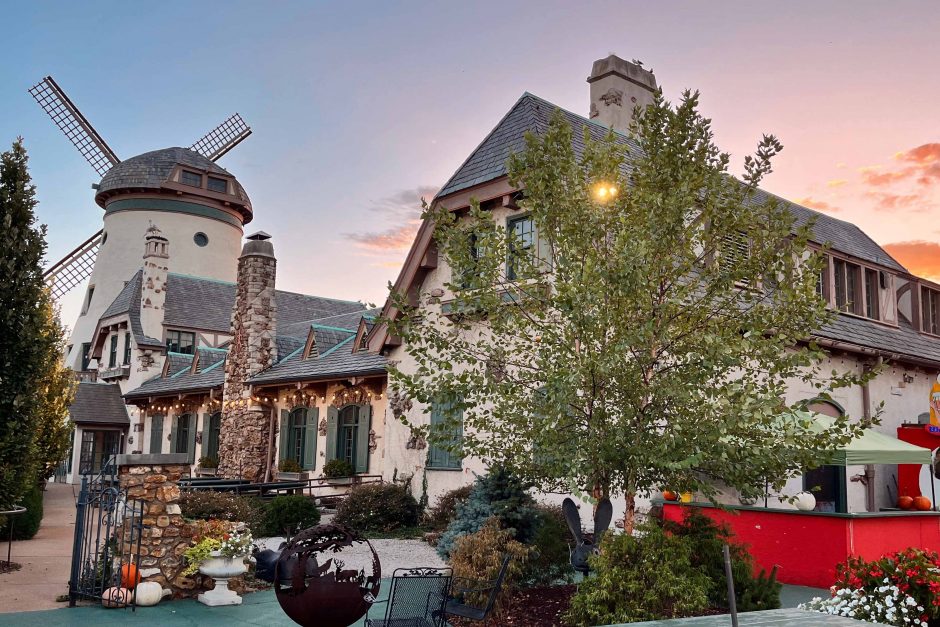Lunch is served: 100% of what’s on your plate is from eastern Iowa
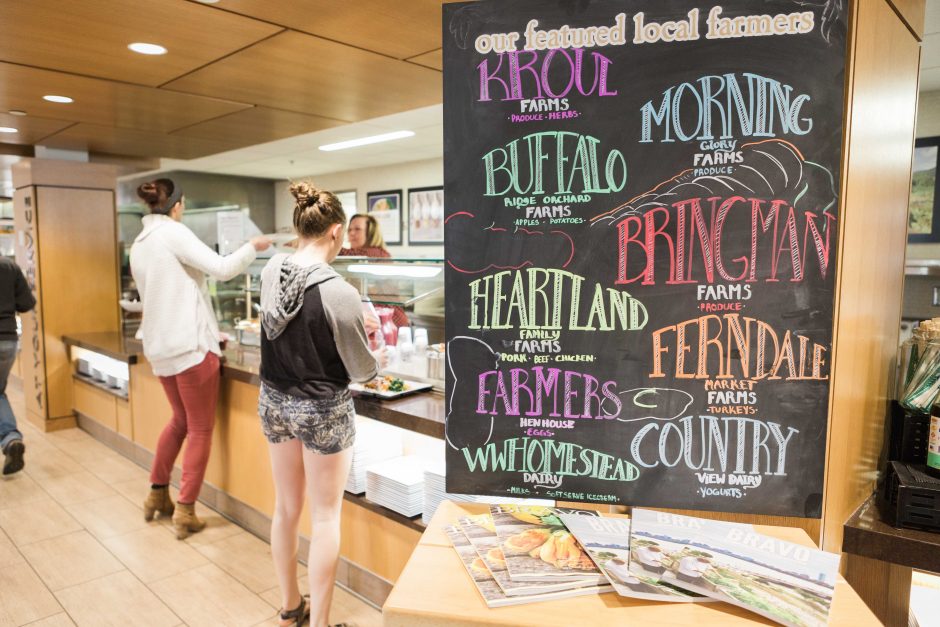
If you think maple honey glazed pork loin with brown butter and apple onion chutney sounds good or maybe buttery mashed potatoes with bacon and greens—you might want to put Sept. 24 on your calendar.
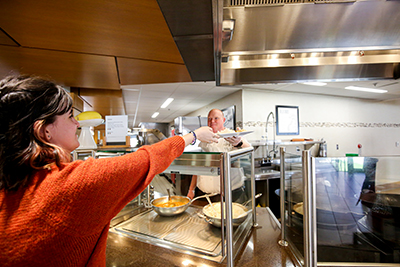 That’s the day when Bon Appétit at Cornell College will celebrate the company’s 20th year of the Eat Local Challenge during meal services, especially lunch. Chefs on campus will challenge themselves to create dishes made only with local ingredients.
That’s the day when Bon Appétit at Cornell College will celebrate the company’s 20th year of the Eat Local Challenge during meal services, especially lunch. Chefs on campus will challenge themselves to create dishes made only with local ingredients.
“We’re sourcing 100% of our ingredients for this Eat Local Challenge on Sept. 24 from within 150 miles to make something really special for our community,” said General Manager of Bon Appétit at Cornell College David Smigo. “Anyone and everyone is welcome to come to the Hilltop Café to taste our local creations.”
But this challenge means your food might taste a little different. Since black pepper isn’t grown locally, that’s one common seasoning you won’t see in the dishes. But you can count on chefs featuring local butter and herbs from area farms.
Plus, several local farmers who grow the food that Cornellians eat will be here to talk with Cornellians and community members at a Farmers Market. They’ll have informational booths and products to share.
“We’re putting a face to the Farm to Fork partners who provide us, daily, with local ingredients for the food we feed our students, faculty, staff, and our community,” said Bon Appétit’s Catering Captain Regina Finn.
When:
- Lunch: 11 a.m.–1 p.m. on Tuesday, Sept. 24
- Farmers Market – 11 a.m.–2 p.m. on Tuesday, Sept. 24
Where:
- Hilltop Café, Bon Appétit of Cornell College, 810 Commons Circle, Mount Vernon, Iowa
The Farm to Fork program has been around for 25 years for the Bon Appétit Management Company. It’s the dedicated program for buying as much local food as possible. 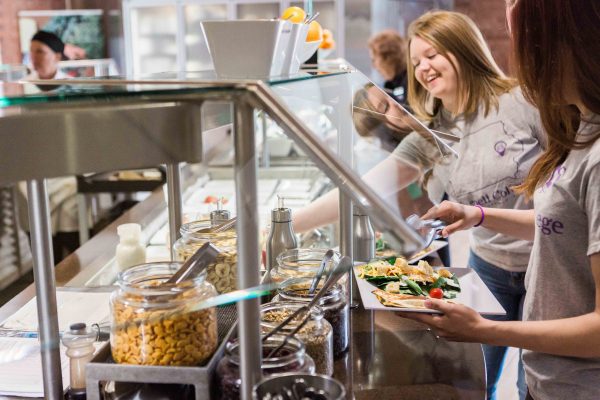
Did you know that, on average, Cornell’s meals use 20–30% locally grown or produced food? That’s everything from tofu to meat and vegetables. For example, during growing season, all of Cornell’s apples and potatoes come from Buffalo Ridge Orchard in Central City and the coffee that supports the late-night studying is locally roasted at Little Scratch Coffee in Mount Vernon.
“With this program, we have way less processed foods,” Smigo said. “We are buying raw ingredients with the goal of getting everything as local as possible, which supports our community and the health of our students.”
This also helps Bon Appétit meet its sustainability goals. For example, locally purchased food is delivered to campus in bins instead of plastic packaging. Cornell’s food service also doesn’t use as much water as other kitchens because they don’t need to thaw meats that are shipped frozen. They’re also reducing carbon emissions because companies aren’t driving long distances to get food to campus.
Working with local foods is something the chefs at Bon Appétit at Cornell enjoy, and this challenge to use 100% local foods will be a fun way to celebrate fall, welcome folks from all over the Eastern Iowa community to try something new, and treat everyone on campus to a special meal.
Chefs are completing the menu now for the Eat Local Challenge and are looking forward to seeing what the community thinks of their creations.

